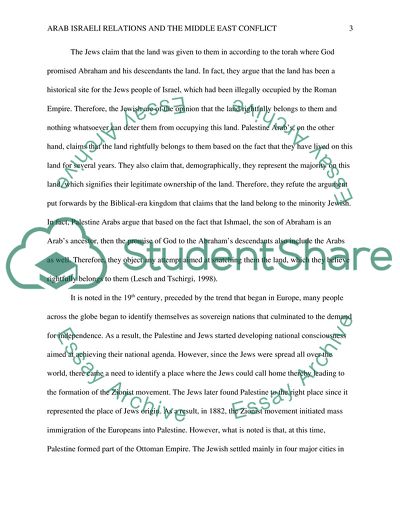Cite this document
(Arab Israeli Relations and the Middle East Conflict Essay Example | Topics and Well Written Essays - 1500 words - 1, n.d.)
Arab Israeli Relations and the Middle East Conflict Essay Example | Topics and Well Written Essays - 1500 words - 1. https://studentshare.org/history/1794350-arab-israeli-relations-and-the-middle-east-conflict
Arab Israeli Relations and the Middle East Conflict Essay Example | Topics and Well Written Essays - 1500 words - 1. https://studentshare.org/history/1794350-arab-israeli-relations-and-the-middle-east-conflict
(Arab Israeli Relations and the Middle East Conflict Essay Example | Topics and Well Written Essays - 1500 Words - 1)
Arab Israeli Relations and the Middle East Conflict Essay Example | Topics and Well Written Essays - 1500 Words - 1. https://studentshare.org/history/1794350-arab-israeli-relations-and-the-middle-east-conflict.
Arab Israeli Relations and the Middle East Conflict Essay Example | Topics and Well Written Essays - 1500 Words - 1. https://studentshare.org/history/1794350-arab-israeli-relations-and-the-middle-east-conflict.
“Arab Israeli Relations and the Middle East Conflict Essay Example | Topics and Well Written Essays - 1500 Words - 1”. https://studentshare.org/history/1794350-arab-israeli-relations-and-the-middle-east-conflict.


